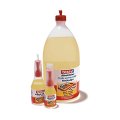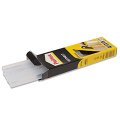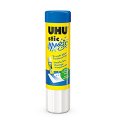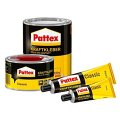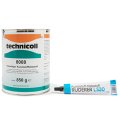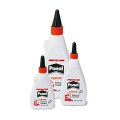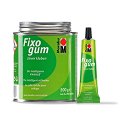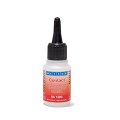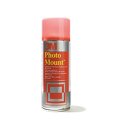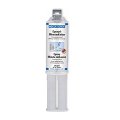Super Glue
Information about superglue
Attributes: Super Glue bonds are resistant to the usual chemicals but especially so against water, oil, benzene, alcohol, weathering and UV rays – this applies in conditions involving a range of temperatures between -50 and +85 °C (Weicon VA 2500 HT even as high as +135 °C). A basic rule can be stated thus: the lower the viscosity of the super glue the quicker it works. If it is to be stored for a longer time, it should be kept cold (e.g. in the refrigerator) in order to prevent it from losing its reaction capability.
Applications: Super glues are one component, reactive adhesives which are mostly made up of ethyl ester-based cyanoacrylate that will harden and set when exposed to moisture in the air (polymerization). This process usually only takes a few seconds and thereby creates bonds with extraordinary strength. It is mostly used for small and even tiny bonds that are secure and quickly made. They bond almost every material (plastic, synthetic and natural rubber, metal, wood, leather, glass, ceramics), regardless of whether porous or not or hard or soft. In the case of the problematic plastics PE and PP, good results can be attained with the help of a POLY PRIMER. Pure super glue is, as a rule, not suitable for bridging larger gaps. Together with a filler (like baking soda), however, it can be used to bridge even wide gaps.
Treatment: A clean and dry surface is important for a good bond; very smooth surfaces should be roughed up before application. One drop of adhesive suffices for about a 3 to 5 cm² area. Super glue should only be applied to one of the surfaces to be bonded and it should not exceed a coat thickness of 0.2 mm because otherwise you cannot be sure that it will cure all the way through. In order to avoid the production of stress in large area bonds it is advisable to only apply the super glue in dots. If, in the case of a thick application, low temperatures or extremely low air moisture, the glue only hardens slowly, the reaction can be accelerated by using the ACTIVATOR SPRAY. Surfaces with an alkaline reaction (pH < 7) accelerate the through-hardening, those with an acidic reaction (pH > 7) slow it down and can, in extreme cases, stop it all together.
Important: When working with cyanoacrylate adhesives, a general concern for safety is recommended because they not only will glue your workpieces but your hand as well – and a strong bond at that! In view of this, the tubes and bottles must, without exception, be kept out of the reach of children!
